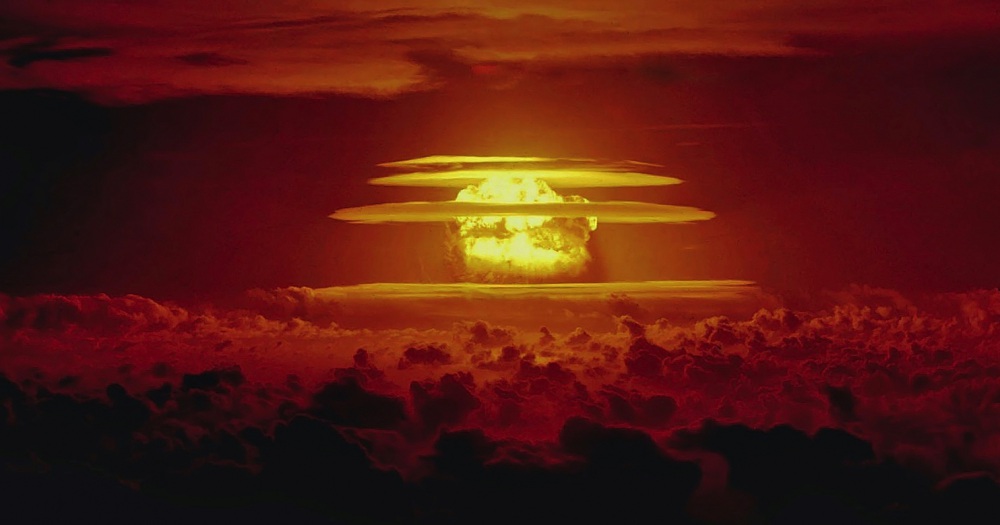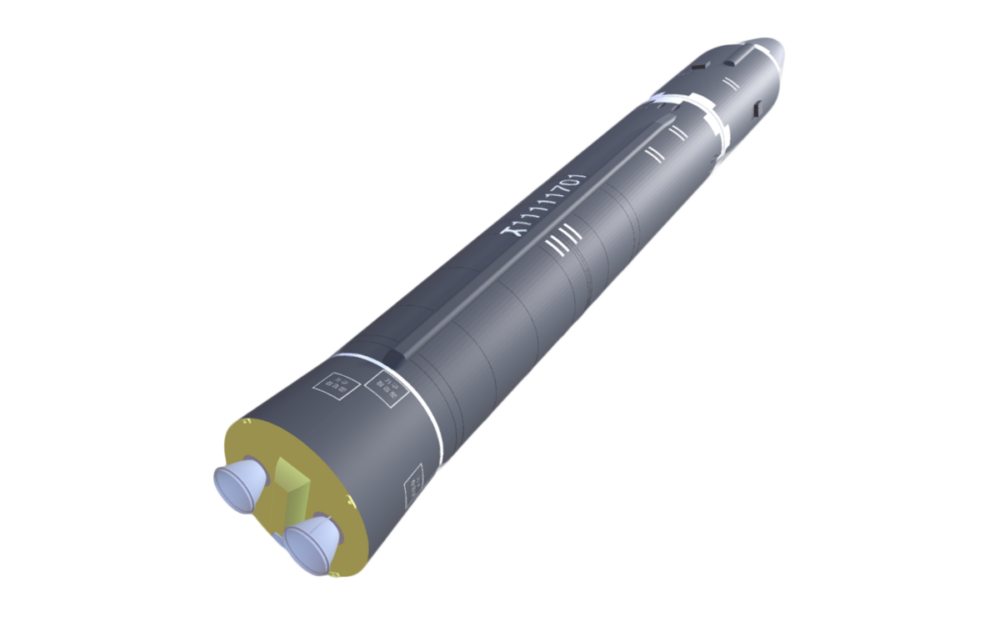
Sam Nunn
Co-Founder and Co-Chair, NTI
Former Senator Sam Nunn
Interview with David Westin, Bloomberg TV’s “Balance of Power”
Re: Russia, China, Iran deal
August 20, 2019
DAVID WESTIN: In the meantime, on August 8th there was a nuclear incident over the White Sea in northern Russia. And then four Russian nuclear monitoring stations went silent. But as of today, the stations have resumed transmitting again to the nuclear test ban organization in Vienna.
We welcome now Sam Nunn who represented Georgia in the Senate for 24 years, where he co-authored the Nunn-Lugar Cooperative Threat Reduction Program. Senator Nunn is co-chairman of the Nuclear Threat Initiative. He joins us today from Atlanta for today's “Conversation in Chief”. So Senator, thank you so much for being with us.
SAM NUNN: Delighted to be with you, David. Thank you.
WESTIN: You are such a student, a scholar, an expert in this area. Can you give your sense of what you think happened in the White Sea? And was it related to these stations that went silent for a while?
NUNN: We don't know a lot about it. I'm sure our intelligence community is working very hard to try to figure out exactly what happened, but obviously there was a nuclear incident. Obviously, there was radiation released. And certainly, it was a tragedy with regard to the people who were killed and injured.
The imperative here, as I hope the Russians have learned from Chernobyl and past experience, and we learned from Three Mile Island, is transparency, getting the word out, safety for those in the immediate vicinity and environmental warnings to any country where there may be radiological problems. So the Russians so far have not responded in a way we would have hoped for, and that is very concerning.
WESTIN: There were reports that in fact this — there was a nuclear device, it was essentially a cruise missile that was being tested out there. We don't know if that's true enough. Those were the reports. If in fact that was true, would that violate any of the current agreements?
NUNN: Well, it may violate the agreement of common sense. So to put a nuclear reactor on a cruise missile seems to me to make no sense, and I think we learned that when we experimented in that direction. But the INF Treaty, which might apply to this particular cruise missile, is already officially over because the United States has withdrawn based on Russian violations, and we no longer have any regulatory regime in that regard. So it's more a matter of safety and environmental concern, and also a matter of complying with the Comprehensive Test Ban Treaty obligation to maintain these stations to measure any kind of radiological discharge. That's an international obligation that Russia shares with other nations.
WESTIN: So Senator, you took us exactly where I was going to go, which is this Intermediate-Range Nuclear Forces Treaty, the INF treaty as was said, that President Trump has withdrawn from, saying, as I understand it, that Russia was cheating on it already. To what extent have we increased the risk simply by withdrawing from that treaty so now the Russians don't feel they need to deal with us on issues like this?
NUNN: Well, David, let's back up and ask ourselves why was there an INF treaty to begin with back in the Reagan administration. And I think perhaps it’s an oversimplification, but the big question for me, back in that time, was whether we were going to realize that we were cutting down on the decision time of leaders, not just in Paris and in London by ground-based systems which were very close to the targets that had nuclear weapons, but also Moscow.
And frankly, it's not in anybody's interest, security-wise – Russia, NATO or the U.S. –
to cut down on decision time for leaders because that means accidents are more likely to happen, false warnings could be acted on. And so right now elimination of that INF Treaty makes the warning time go down if we deploy those kind of weapons.
But to the larger picture, warning time and decision time is already going down because of technological developments, including hypersonic missiles, including possible tinkering and interference with command and control by cyber attacks and interference with warning systems.
So the two countries – United States and Russia, but also NATO is very involved, and China increasingly so – we are not utilizing technology to reduce risk. Technology is now increasing risk by reducing decision time.
Winston Churchill once said to his country and indeed to the world that no matter how beautiful the strategy, occasionally one must look at the results. And if the United States and Russia now look at the results, as well as other nuclear powers like India and Pakistan, we better start talking to each other about how we can utilize technology to reduce risk. Right now, technology is greatly increasing risk of some type of nuclear catastrophe.
WESTIN: You raise such a good and overlooked point, which is China is a nuclear power. We tend to talk about only the influence they might have over North Korea. But to what extent is China cooperating with the United States and maybe even with Russia to really get our arms around these nuclear weapons?
NUNN: Well, China takes the position they only have three or four or whatever hundred nuclear weapons, and Russia and the United States have thousands. So they are not going to play the game. In my view, the best way of getting China's attention on these issues is for United States and Russia to have meaningful dialogue.
I've always noticed that the Chinese get more interested in arms control when the United States and Russia are talking seriously. They might not want to be a player, but they certainly are interested. So we're not going to get China involved in any three-way agreement any time soon, in my opinion. But China has a role to play here. And right now, United States’ policy inadvertently, and not just in this administration but the last two or three administrations, has moved China and Russia closer in an alliance of countries that are angry at the United States.
It's never a good idea strategically to get all of your possible adversaries aligned against you at one time. And we seem to be inexorably moving in that direction.
WESTIN: Senator, it's not just the INF Treaty with Russia that the United States has withdrawn from. We've also withdrawn from that Iran agreement, and Iran has now said they're going to start increasing their enrichment of uranium as long as we don't come back in and Europe doesn't cooperate and give them the supplies that they want. How big a danger is that at this point?
NUNN: Well, it was what the original Iran agreement was aimed toward, is to get rid of the highly enriched material, which has happened, and to prevent production of other highly enriched material. And Iran is going to move in that direction. We pulled out of the treaty. In my view, it was a dreadful mistake for United States to pull out, having led the other countries of the world to put pressure on Iran, which led to the agreement that bought us at least 15 years in terms of a verifiable prohibition against production of nuclear materials, which could lead to the production of nuclear weapons.
So it was, I think, a very bad mistake for the United States to pull out of that agreement, particularly since there was no Plan B, no Plan B at all, in terms of how to deal with Iran. So right now it's going to be much harder for the United States to mobilize other countries to come together on anything, not just Iran, because we are seemingly disdainful, this administration, of previously negotiated treaties that involve many countries in the world.
WESTIN: Senator, finally, you won a lot of elections in your career, going all the way back to Georgia’s State Legislature. Explain the political system, because when you come on and talk about these things, they seem pretty important, and yet I don't hear any discussion at all among the Democratic candidates on the stage, debating stage, from President Trump or anyone else. What's wrong with the political system that we're not talking about this?
NUNN: Well, of course, the Russians interfered in our election, and we have crossed up with the Russians in the Middle East and in Ukraine and so forth, and so people are sort of angry at Russia, and nobody dares touch Russia. It's the third rail in American politics right now. But that's a very, I think, very profound mistake. We basically behave as if discussions with a country that contains enough nuclear weapons to destroy America, that talking to them is a reward for good behavior. It is not a reward for good behavior. Dialogue with the Russians is absolutely imperative for American security. And we seem to be forgetting that lesson. And the Russians of course are making their share of mistakes also in this regard.
WESTIN: Okay, Senator. Great to have you on, as always. That's Sam Nunn. He is co-chair of the Nuclear Threat Initiative.
* * * * *
Sign up for our newsletter to get the latest on nuclear and biological threats.
Christopher Nolan's Oppenheimer is the most high-profile film about nuclear weapons ever made.
A collection of missile tests including the date, time, missile name, launch agency, facility name, and test outcome.


